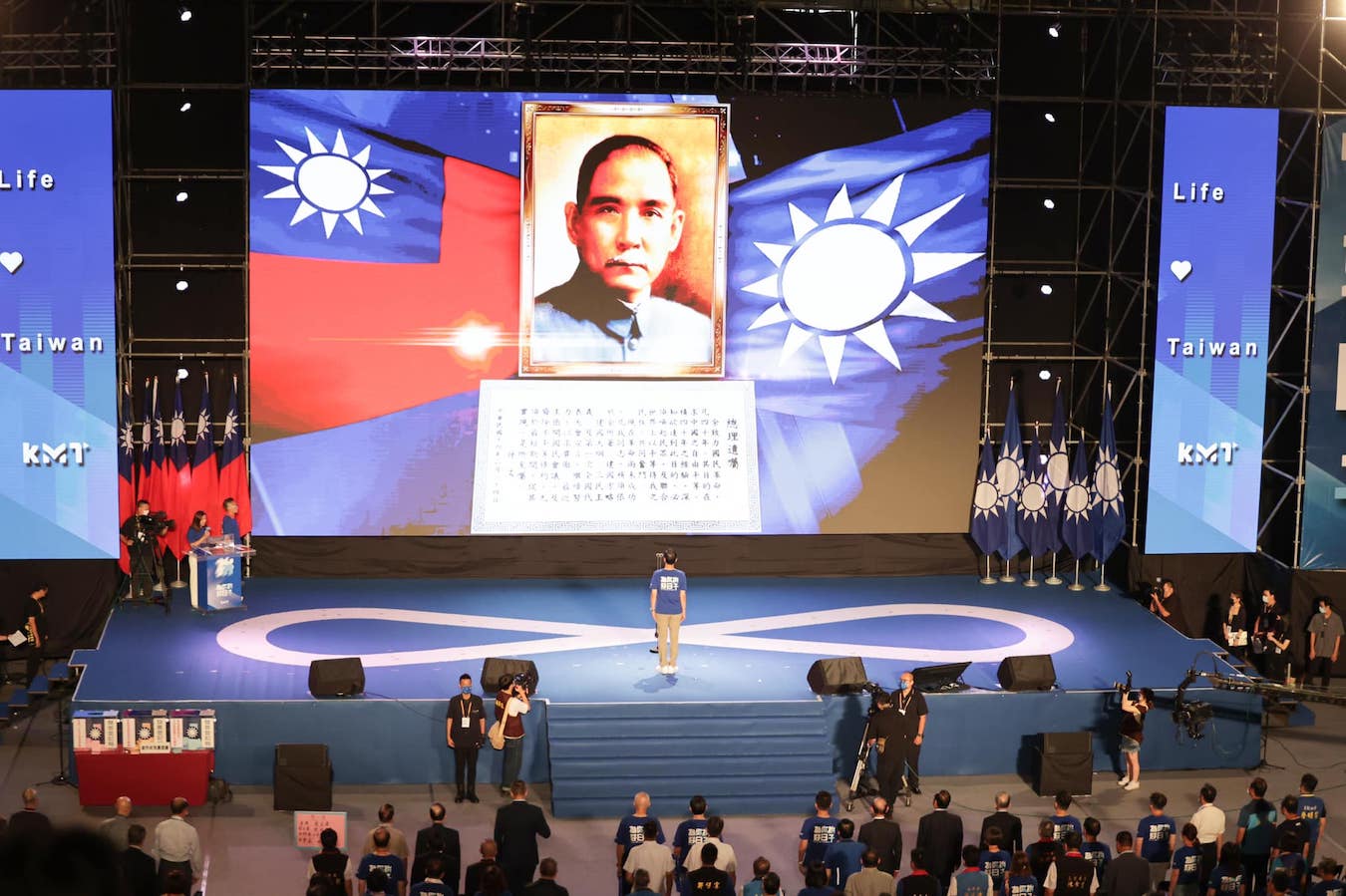by Brian Hioe
語言:
English
Photo Credit: tenz1225/Flickr/CC BY-SA 2.0
QUESTIONS HAVE been raised about whether an upcoming referendum to lower the voting age from 20 to 18 will pass. Concerns have been raised about whether the referendum will meet the referendum may not meet the 9.65 million votes necessary to pass constitutional changes. This means that young people can serve in the army, drink, and are able to vote in national referendums, seeing as changes to the Referendum Act in December 2017 lowered the age for voting in the referendum from 20 to 18, but they cannot vote for elected representatives in Taiwan currently.
Both camps in Taiwan nominally support lowering the voting age. The legislature voted by 109 to zero in March to lower the voting age, with unanimous votes from both parties, clearing the path for a national referendum to be held on the issue. This is the first such bill to clear the legislature in 17 years.
 The recent KMT national congress. Photo credit: KMT/Facebook
The recent KMT national congress. Photo credit: KMT/Facebook
At the time, the KMT was accused of not actually wanting a referendum to be held on the issue. While an additional 500,000 voters would be added to the electorate by lowering the voting age, it is thought that this would benefit the DPP more than the KMT. Younger Taiwanese are more likely to vote DPP than KMT, given that younger Taiwanese overwhelmingly identify as Taiwanese and not Chinese.
In particular, citing changes to the Referendum Act that do not require referendums to be held on the same day as elections, the KMT tried to ensure that the referendum did not take place on the same day as elections. This would lower the odds of the referendum passing.
To begin with, local elections in Taiwan normally see lower turnout. Local elections in 2018 saw 66.11% turnout for a voter electorate of 19,102,502, while local elections in 2014 saw 66.31% turnout for a voter electorate of 18,511,356. The referendum vote that was held in 2021 saw around 9 million participants, with benchmarks for changes to the constitution required to be binding higher than needed for other referendum issues, in that 50% of the voter electorate needs to agree on an issue, rather than only 25%.
Recent polling commissioned by DPP politician Enoch Wu’s Forward Taiwan suggests that only 30.5% of the public support lowering the voting age at present. This is a significant improvement from 2004 polling, which suggested that only 20% supported lowering the voting age, but according to Forward Taiwan, this means that the voting age referendum would still be short two million votes to pass.
Perhaps unsurprisingly, pan-Blue parties were more likely to disapprove of lowering the voter age, with 62.4% of KMT supporters against lowering the voting age and 29.8% supportive of it, while 54.5% of TPP supporters were against lowering the voting age, and 40.4% supported it. But even 37.6% of pan-Green NPP supporters were against lowering the voter age, while 47.9% were in favor of it.
The KMT has stymied attempts to lower the voting age in the past. A proposal for lowering the voting age was put to a premature end by KMT caucus whip Lai Shyh-bao in May 2015 by attaching the proposal to other draft proposals about other longstanding voting issues such as that of absentee voting, making it impossible for the proposal to advance.
Ma Ying-Jeou and the KMT argued in June 2015 that the Taiwanese public does not support lowering the voting age, as based on research conducted by the KMT’s research center. Polling by Taiwan Indicators Survey Research and National Development Committee at the time suggested that this actually was correct, however, meaning that there has been a history of polls in Taiwan that suggest the public does not support lowering the voting age.
Another significant factor may be that many individuals are not aware that the referendum is taking place, with only 53.3 percent of respondents aware of it. The election cycle has dominated political discussion and relatively little attention on the referendum, with more focus on the Lin Chih-chien plagiarism scandal or the hotly contested Taipei mayoral race.
 President Tsai Ing-wen on the campaign trail. Photo credit: Tsai Ing-wen/Facebook
President Tsai Ing-wen on the campaign trail. Photo credit: Tsai Ing-wen/Facebook
President Tsai Ing-wen, the leader of the DPP, has emphasized the need for the referendum to pass, with the party staging election rallies regarding the issue. Nevertheless, the referendum will require some degree of bipartisan support to pass. Tsai won with 8.17 million votes in 2020, which is still short of the 9.65 million votes necessary for the referendum.
Statistically, eighteen is the most common voting age for countries across the world, with 90% of 190 countries having a voting age of eighteen. Voting age is eighteen in the Philippines, Vietnam, Cambodia, Hong Kong, and China, seeing as elections for local government exists in China. Notable exceptions include South Korea, whose voting age is set at nineteen and Malaysia and Singapore, whose voting ages remain at twenty-one.
The highest minimum voting age in democracies the world over is, in fact, in most cases twenty-one, which places Taiwan at the high end of the spectrum where voting age is concerned. Yet with efforts to lower the voting age in Taiwan having failed in the past, it is to be seen whether this most recent attempt proves successful.

